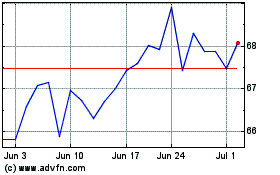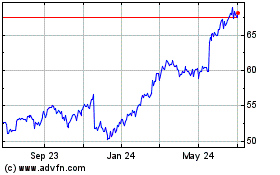By Andrew Beaton
In 2017, an attorney named Thomas Mars was driving around
Mississippi listening to an audiobook called "The System: The Glory
and Scandal of Big-Time College Football." He knew almost nothing
about college football. He knew even less about how much the book's
title would soon come to define him.
Three years later, Mars has become the unlikeliest rabble-rouser
in the sport. One of the few guys in the South who never bothered
to watch college football on weekends has developed a potent legal
practice helping players and needling the sport's most powerful
institutions.
Mars's work led to coach Hugh Freeze leaving Ole Miss amid an
embarrassing scandal. His assistance to players has made him the
only person beloved by fans at both Michigan and Ohio State. He's a
private sounding board for many of college football's most powerful
coaches and administrators -- the same people who one day could be
on the other side of one of his legal attacks.
In recent weeks, his cause célèbre was the Big Ten's decision to
postpone its football season because of the pandemic. Mars, 62
years old, represented the families of players who wanted to
reverse course -- which the conference did last week when it said
its season would begin in October. Mars exerted public pressure on
the Big Ten, and every one of its schools, by battling with the
universities' lawyers over records related to the decision while
privately helping players and coaches amplify the message that they
still wanted to play.
The oddest part is how Mars arrived at his role as college
football's chief antagonist. He was a cop. He was a young lawyer at
an Arkansas law firm working for a partner named Hillary Clinton.
He was director of the Arkansas State Police and a member of Mike
Huckabee's cabinet. He was Walmart Inc.'s general counsel and chief
administrative officer in the U.S.
"Nobody could've planned any of this," Mars said. "You couldn't
make this up or map it out."
Mars's mission to turn college football upside down began three
years ago when his cell phone buzzed as he pulled into the driveway
of his Arkansas home. It was his close friend and former pastor Rex
Horne, who wanted to know if Mars could help Houston Nutt, a
longtime coach at Arkansas and then at Mississippi. Nutt believed
Ole Miss was falsely attempting to pin its NCAA enforcement
problems on him. Nutt and Mars, it turned out, were once next-door
neighbors -- but Mars was the only guy on the block who never
bothered to introduce himself.
It wasn't the type of case Mars usually took on. He didn't know
the difference between a touchback and a safety. "I knew the object
was to get the football in the other guy's end zone," he says.
But he had already found that the best parts of his career came
from these unexpected twists. He was a middling college student who
became a police officer in Virginia before barely getting into
Arkansas's law school in 1982 as part of a dream to become an FBI
agent. He was ready to quit after a semester until the dean called
to tell him how dumb that would be: Mars was at the top of his
class.
That led to a clerkship in Utah on the Tenth Circuit Court of
Appeals in 1985, and just when he was about to finally get accepted
as an FBI agent he got a phone call that set him on a completely
different track. Hillary Clinton, a partner at the Rose Law Firm,
wanted to hire him. He reported directly to Clinton and Vince
Foster, with his tiny office serving as the unofficial waiting room
when Bill Cinton popped over from the governor's mansion.
Mars later set out on his own, and in the early '90s his first
major case was a successful class action in a natural gas deal
against a business that was co-owned by Jerry Jones. The Dallas
Cowboys owner was so impressed by the lawyer who whupped him in
court that he invited Mars onto the field for a game.
"I didn't like any part of that case, Tom, but you did a hell of
a job," he recalls Jones told him.
Mars's career took a new turn when he joined Wamart's legal team
in 2002, rising to become the retail giant's general counsel and
later its chief administrative officer in the U.S. But he left the
company after a 2012 scandal in which it was accused of paying
bribes around the world. Walmart paid $282 million in a settlement
with the U.S. government in which the company agreed it had lax
policies.
Mars felt the scandal was overblown and unfairly associated him
publicly with any wrongdoing. "It tarnished my reputation in a way
that I couldn't do anything about," he says. He adds he left
Walmart with a handsome severance -- and empathy for someone else
who was publicly accused of misdeeds he didn't have any part
in.
"I know what it's like to be in Houston Nutt's shoes," he
says.
Ole Miss' problems with Nutt could have disappeared with one
word: sorry.
Mars concluded that Ole Miss had engaged in a clear effort to
publicly blame its NCAA woes, which chiefly focused on
impermissible benefits involving boosters and recruits, on Nutt,
its former coach. Freeze, then the current coach, was a golden boy
in Oxford, Miss. who was beloved for both his piety and success,
including when he notably beat Alabama -- twice.
Mars asked for Ole Miss to privately apologize to Nutt, who was
distraught that his elderly mother had seen news reports alleging
he was behind the wrongdoing. The school refused. Mars went to
work.
"When you have Tom Mars on the other sideline, you better buckle
up," Nutt says.
As part of a defamation lawsuit against the school in July of
2017, Mars requested a trove of documents from Ole Miss under
public records law. He was looking for evidence of a specific phone
call Freeze made to a reporter, in which Freeze told the reporter
Nutt was behind the wrongdoing. Mars waged war with the school's
lawyers to obtain the records.
He got those records, and he found the smoking gun he needed:
evidence of that phone call. But the call logs contained something
even more troubling: Freeze had used his university phone to call
an escort service. Freeze was out of a job less than two weeks
after Nutt's lawsuit was filed. The Wall Street Journal later
reported the school had discovered a pattern of similar misconduct
when Freeze was traveling, using the school's plane, on recruiting
trips.
Freeze, now the coach at Liberty University, could not be
reached for comment on Mars through a school spokesman.
Mars was considered an enemy of state in Oxford, Miss. Nutt got
his apology a few months later. But when Mars returned to his law
practice, his life shifted unexpectedly again.
The parents of Ole Miss players, who weeks earlier loathed him
for tearing down the program, sought to hire him. The families felt
they had been falsely told when they were recruited that the
program's NCAA problems occurred under Nutt, not Freeze. They
wanted waivers from the NCAA to transfer and be immediately
eligible to play. It was Mars vs. Ole Miss Part II.
Those players included Shea Patterson, a highly-regarded
quarterback who left for Michigan and was granted immediate
eligibility against Ole Miss' wishes. It was such a celebrated
moment in Ann Arbor that Mars won't have to pay for his own beer at
Rick's ever again.
Yet he's just as highly regarded by Ohio State fans. As word
spread, dozens of athletes across the country started working with
Mars. He was retained by the family of Justin Fields, who was
seeking to transfer from Georgia. Fields is now the Buckeyes' star
quarterback.
Mars charges the families a heavily-discounted rate because he
can afford thanks to his severance package from Walmart, he
says.
Which is also why, now, he's happy to be working -- and getting
public notice -- for something he finds personal satisfaction in.
His success representing transfers led parents to seek him out when
the Big Ten season had been postponed. The parents and players
wanted an explanation for why the conference pumped the brakes
while others went forward. Mars became their public advocate,
questioning the legality behind the decision making and requesting
internal records over the decision.
"I only resort to being combative and increasingly combative if
necessary," Mars says.
Write to Andrew Beaton at andrew.beaton@wsj.com
(END) Dow Jones Newswires
September 21, 2020 09:38 ET (13:38 GMT)
Copyright (c) 2020 Dow Jones & Company, Inc.
Walmart (NYSE:WMT)
Historical Stock Chart
From Mar 2024 to Apr 2024

Walmart (NYSE:WMT)
Historical Stock Chart
From Apr 2023 to Apr 2024
